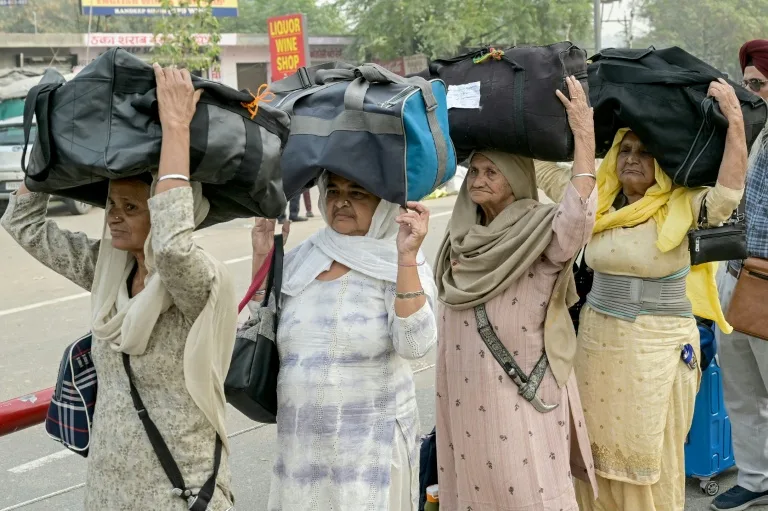
In a significant moment for religious and cultural diplomacy, dozens of Sikh pilgrims from India entered Pakistan on Tuesday, marking the first major land crossing between the two nuclear-armed neighbors since violent clashes shut down the border in May 2025. The visit, documented by AFP journalists, comes ahead of the 556th birth anniversary celebrations of Guru Nanak, the revered founder of the Sikh religion.
A Border Reopened for Faith Amid Political Tensions
More than 2,100 Sikh pilgrims from India were issued visas for the 10-day festivities in Pakistan, according to the Pakistani High Commission in New Delhi. However, Indian media reported that around 1,700 pilgrims were expected to make the journey via the Wagah-Attari border crossing—the only active land route between the two countries.
The crossing, shuttered for months following the worst military confrontation since the Kargil War of 1999, saw the tragic loss of over 70 lives in artillery, drone, and missile exchanges in May 2025. The conflict erupted after New Delhi accused Islamabad of aiding an attack on tourists in Indian-administered Kashmir—an allegation Pakistan strongly refuted.
Despite tensions, the reopening for Sikh pilgrims ahead of Guru Nanak’s birth anniversary is viewed as a symbolic gesture promoting interfaith harmony and regional peace.
Flower Garlands and Warm Welcomes in Pakistan
As the pilgrims passed through Wagah on Tuesday morning, they were greeted with flower garlands and rose petals by Pakistani officials, signalling a warm reception amid cross-border acrimony. Many in the group were seen carrying heavy bags on their heads as they patiently waited to complete immigration formalities.
The devotees are set to join thousands of others at Nankana Sahib, located 80 kilometers (50 miles) west of Lahore. Nankana Sahib is the birthplace of Guru Nanak and one of the holiest sites in Sikhism. The itinerary also includes visits to Kartarpur, where Guru Nanak spent the later years of his life and is believed to be buried.
Kartarpur Corridor Still Closed Post-Conflict
While the visa-based travel route has reopened for select pilgrims, the historic Kartarpur Corridor—a visa-free border crossing opened in 2019—remains closed since the May conflict. The corridor was designed to allow Indian Sikhs to visit Kartarpur Darbar Sahib directly from India without formal visas. Authorities have not announced any plans for its reopening as of yet.
The Pakistani High Commission said it approved the visas as part of efforts to deepen “inter-religious and inter-cultural harmony and understanding” between the two countries, in accordance with long-standing commitments under the Bilateral Protocol on Visits to Religious Shrines (1974).
A Shared Legacy Amidst Borders and Conflict
Sikhism was born in the 15th century in Punjab—a cultural region now split between India and Pakistan. The violent partition in 1947, which led to mass displacements and the creation of current-day India and Pakistan, uprooted most Sikhs to Indian territory. However, some of the most significant Sikh shrines, including Nankana Sahib and Kartarpur, ended up on the Pakistani side.
Despite the fraught history and present-day political tensions, religious visits of this kind continue to serve as a crucial reminder of the subcontinent’s shared cultural heritage.


Leave a Reply